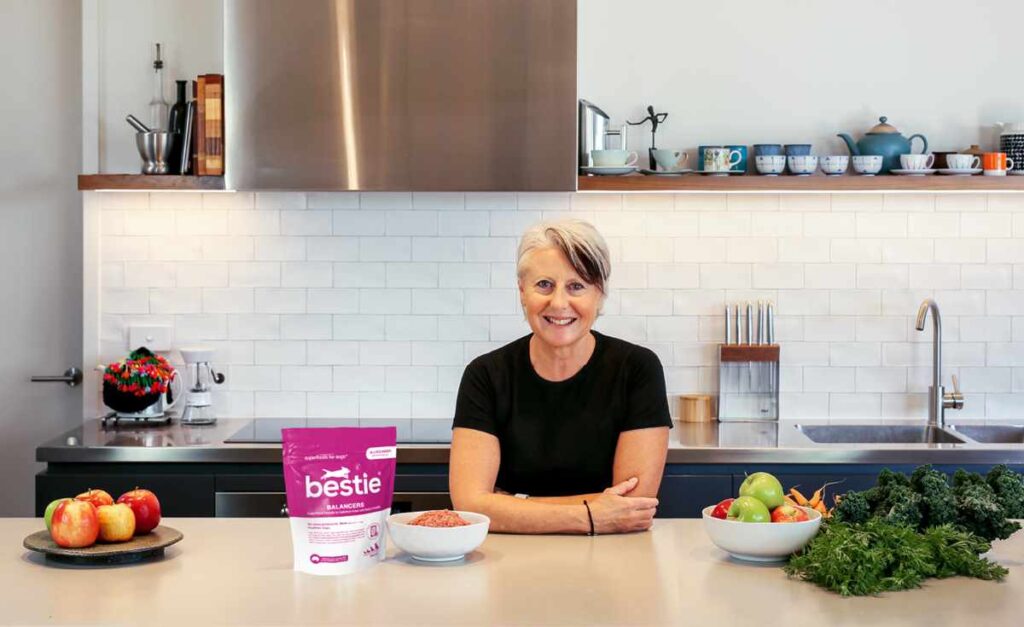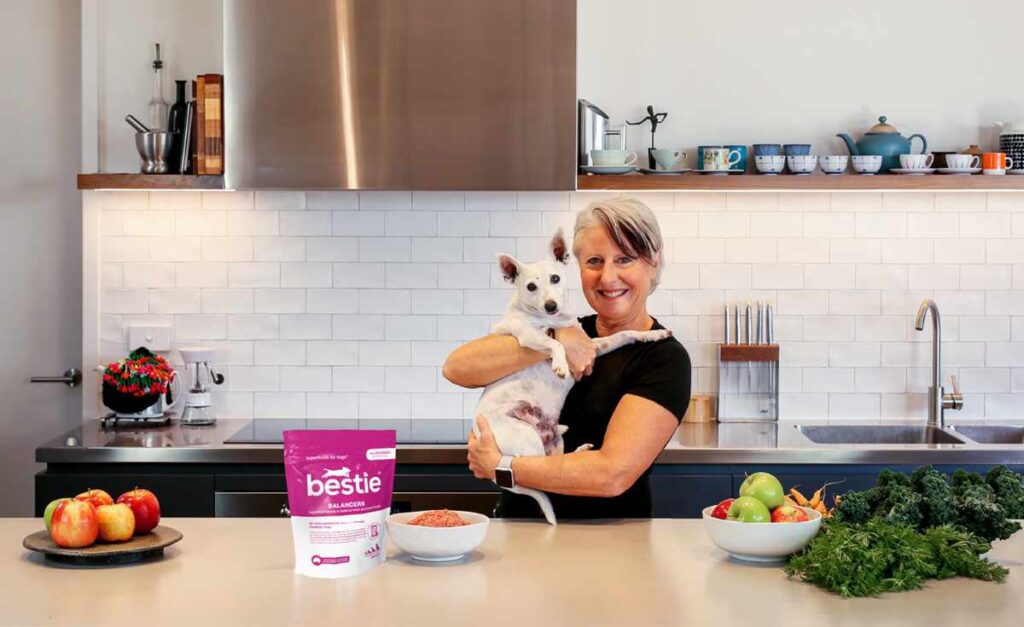
Estimated reading time: 1 minute
Update 2 March 2023:
The fourth episode of The Pet Nutrition Show is now out!
In the latest episode podcast hosts Amanda Falconer and Dr Anna Sutton look into the intricacies of pet food processing and its impact on nutrition. The show also tells listeners about the importance of variety in a pets’ diet and why pet parents should rotate meals.
With the focus being the best dietary options for dogs and cats, Dr Anna also shares some food hacks for healthy, and delicious, pet treats.
Here’s a list of what listeners can expect from episode four:
- The impact of pet food processing
- Nutritional building blocks
- Benefits of incorporating food waste, algae, and insect-based protein
- Diverse protein sources for pets
- And some practical tips for pet owners, like this clip below of Dr Anna’s watermelon treat recipe!
A new pet nutrition podcast has recently launched, and it aims to educate Australians about the importance of sustainable pet food.
The “The Pet Nutrition Show” highlights the often-overlooked impact of pet food on the environment.
Joined by researchers and vets from around the world, the show hopes to inspire pet owners to consider their pets’ environmental “paw print.”
We talk to co-host Amanda Falconer to learn more about the podcast, its first guests, and what listeners can anticipate weekly.
Pet Podcast: The Pet Nutrition Show
The new podcast aims to provide listeners with the latest research, advice, and discussions about the little-known subject of what pet food can do to the environment.
Hosted by Amanda Falconer, CEO of Planet A Pet Food, and Dr. Anna Sutton, a small animal nutritionist, the show focuses on pet nutrition through a sustainability lens.
Amanda’s own business emphasises sustainability, featuring insect protein as a primary ingredient.
Read our recent interview with Amanda about the business here.
“There are many myths surrounding pet nutrition,” Amanda says. “Much of the narrative around various trends is both untrue and unsustainable.”
Amanda says the show aims to highlight these issues. And, with a strong focus on sustainability, also providing educational content about pet health and well-being.
Each week, Amanda and Anna will explore pet food science, diet benefits, and the latest nutrition trends.
“The environmental impact of human meat-based diets is significant. It’s why I adopted a plant-based diet,” Falconer states.
“And while pet food’s impact is smaller, it’s still significant. It’s crucial to know that choosing sustainability doesn’t compromise pet health,” she adds.

Episode ONE: sustainable pet food
Dr Peter Alexander from the University of Edinburgh is the first guest. He offers insights into pet food’s environmental impact and claims that cats and dogs contribute more to pollution than cars. During his research he came to learn that a 10kg dog’s carbon footprint could match four cars!
“If we’re reducing our travel and rethinking our diets, we must also consider our pets’ impact,” he suggests.
Interestingly, Alexander notes that supermarket pet food may be more environmentally friendly than premium options.
“Wet foods often have more meat and higher emissions,” he explains.
He tells the hosts that possible solutions could be reducing the number, or type of, pets we own.
“Clearly we could have fewer pets, but maybe the more acceptable alternative would be to have smaller pets,” he says.
“But if we can move down from a Great Dane to a Jack Russell, well that would actually have a pretty material impact.”
Episode TWO: vegan diets for pets
Dr. Andrew Knight, an Australian vet turned academic, is the next guest. He discusses the benefits of vegan diets for pets.
“We know from the 10 studies looking at health outcomes for dogs fed vegan diets, there seem to be a couple of consistent healthcare benefits,” he shares on the podcast.
“(including) less associated problems with gastrointestinal reactions from dietary intolerances, itchy skin, allergic reactions, and they’re less likely to suffer from being overweight.”
“So, they’re not just living an extra decade if they had been a human being, they’re also having a better quality of life as well.”
Knight believes that vegan diets for pets can reduce their environmental impact and improve global food availability.
“If dogs worldwide switched to vegan diets, it would cut greenhouse gases more than the entire UK emits,” he says.
Episode THREE: balanced diets for pets
Episode three features Laura Ward, a UK pet nutritionist. On this week’s show, Laura speaks to Amanda and Dr Anna about balanced diets for pets. Amongst the topics you’ll hear them discuss are nutritional requirements, the concept of biologically appropriate diets for dogs, and protein in pet food.
Looking ahead
As the podcast grows, Amanda and Dr Anna aim to foster a community of informed, engaged pet owners.
“The Pet Nutrition Show” promises to be essential listening for those interested in sustainable, health-conscious pet care.
The episode will be available at 9am today. All episodes of the podcast are available on Spotify, Apple, and other podcast networks.












